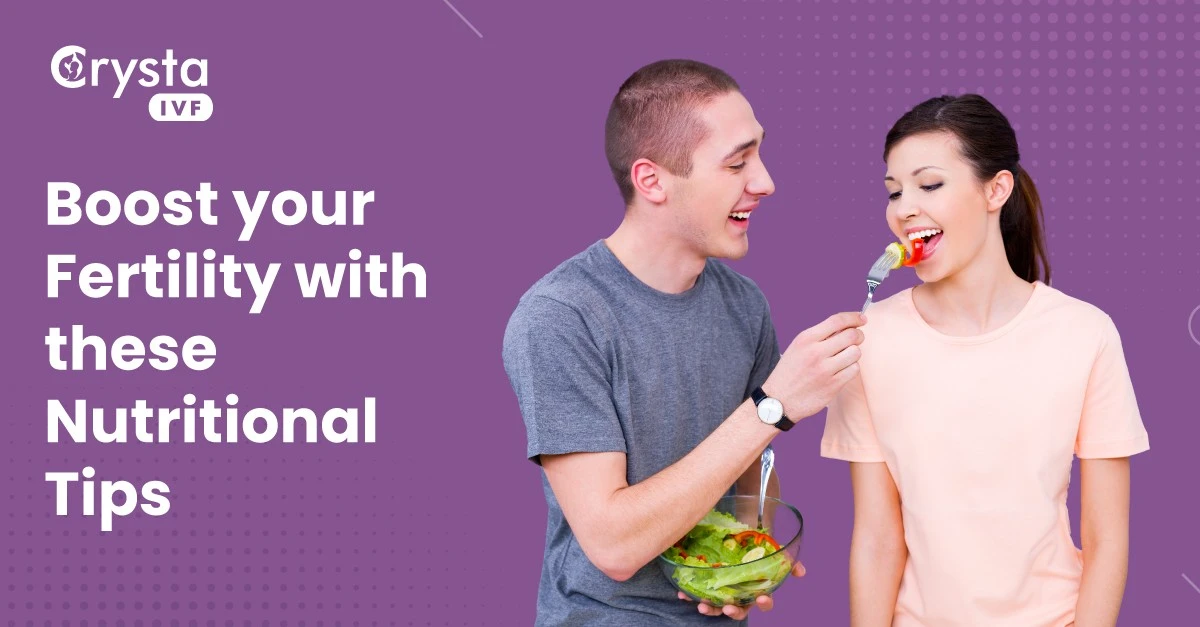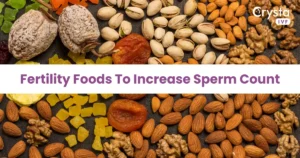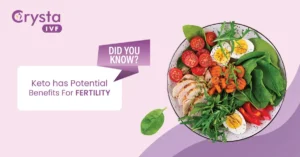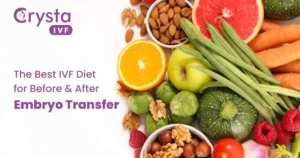We are what we eat. It’s an old saying, but it rings especially true when talking about fertility and reproductive health. The food we consume has a direct impact on our bodies, and that includes the ability to have children.
Poor nutrition can be a host of several problems that can affect fertility, including hormonal imbalances, irregular periods, ovulation disorders, and even miscarriage.
Even the recent data reveals that around 10 – 15 percent of couples experience infertility, or the failure to get pregnant within a year. One of the primary reasons for this could be unhealthy lifestyle choices.
But according to fertility experts and dietitians, simple changes to diet and lifestyle may increase the chances of conceiving due to the below-mentioned reasons.
Diet and Nutrition Can Play a Role in Fertility
If you’re trying to get pregnant, it’s essential to make sure you’re eating a balanced diet that provides all the nutrients your body needs. Many nutrients are critical for reproductive health, including vitamins, minerals, and antioxidants.
Here are some tips on achieving optimal fertility through diet and nutrition.
- Eating plenty of fresh fruits and vegetables is a good place to start:

There are many benefits to eating foods high in antioxidants, especially for couples undergoing Assisted Reproductive Technology (ART), such as IVF. Antioxidants help reduce damage from oxygen and can increase live birth rates.
The bright colors often found in fruits and vegetables are a good indication of their antioxidant content. So next time you’re at the grocery store, make sure to load up on these nutrient-rich foods.
- Focus on Plant-Based Protein Food:
Protein is essential for many processes in the body, including hormone production. So, make sure you are getting enough protein from your regular diet. Include foods like –
- Beans
- Nuts
- Seeds
- Lentils
- Soy
- Get healthy Fats that are super healthy:
You must cut trans fats or saturated foods from your diet to boost your fertility. Avoid foods such as hydrogenated oils, packaged snacks, baked goods, and fried foods. Instead, choose heart-healthy unsaturated fats, such as –
- Avocados
- Almonds
- Walnuts
- Olive oil
- Seeds
- Fatty fish
- Increase your Vitamin D level:
Vitamin D deficiency among men & women of reproductive age is lowering the chances of pregnancy. Foods such as egg yolk, salmon, cod liver oil, and fortified milk are good sources of vitamin D. Despite these, you should also get 5 to 10 minutes of good sunlight exposure each day.
- Get Iron every day:
Insufficient iron intakes are often the common causes that contribute to increased risk before conception. Adding iron-rich food to your diet may improve your chances of fertility. Food rich in iron supplements include –
- Beans
- Lentils
- Spinach
- Fortified Cereals
- Long-grain enriched rice
- Adequate Consumption of Whole Grain:
Higher consumption of whole grains helps stabilize blood sugar and prevent hormonal fluctuations that can disrupt fertility. Add these entire grains to your diet –
- Whole grain bread
- Cereals
- Barley
- Whole fruits
- Brown rice
Also, try to avoid refined carbohydrates, such as white bread, pasta, sugary cereals, added sugar, soda, fruit juices, pastries, and cookies.
- Limit or break off from particular food or drinks:
An unhealthy diet can put you at risk for problems conceiving or miscarrying. So avoiding processed foods, sugary drinks, alcohol, and cigarettes and limiting caffeine may also help boost your fertility.
- Achieve a healthy weight along with healthy nutrition:

Women who are overweight or obese can have more difficulty getting pregnant and having a healthy pregnancy. Being overweight or obese can also increase your risk for miscarriage, gestational diabetes, and preterm birth.
If you’re overweight or obese, work to improve your diet and get in more physical activity to help you get pregnant.
Fertility and Diet
Achieving optimal fertility through diet and nutrition is a lot easier than you might think. And while it may seem daunting, committing to your health and overall well-being will pay off.
A well-rounded diet that includes essential nutrients will aid both men and women achieve a healthy lifestyle. It helps them boost overall remission and may combat diseases that cause infertility, such as diabetes.
Finding ways to enhance fertility is becoming more important than ever due to increased environmental stressors, hectic & busy life, job stress, and poor lifestyle choices. So, it is essential to give your body the best chance.
Before You Go
We encourage you to make healthy choices for your fertility journey or talk with a fertility specialist at Crysta IVF if you’re having trouble conceiving or have a medical condition such as Polycystic ovary syndrome (PCOS) that may affect fertility.
Fertility experts at Crysta IVF will help you plan a proper nutritional diet based on your specific needs.
Or, in case you’re already diagnosed with infertility and undergoing In Vitro Fertilization (IVF) treatment, check out the best tips to prepare for successful IVF treatment & frozen embryo transfer.
Enjoy the taste of eating right!




